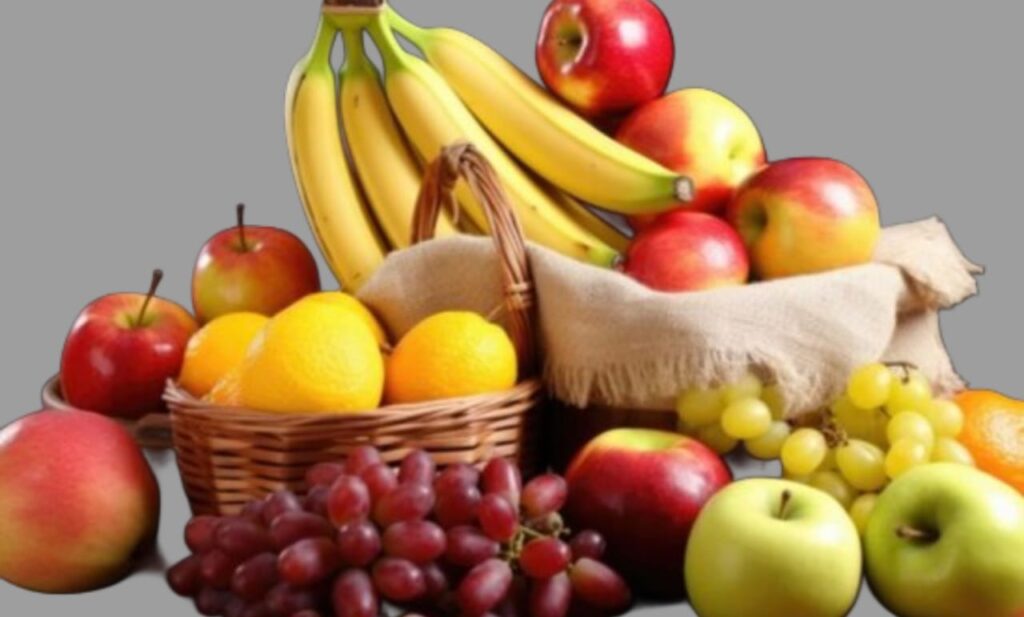
Colon cancer is the third most common cancer globally, with over 150,000 new cases expected in the U.S. in 2024. While genetics and lifestyle factors like smoking or inactivity contribute to risk, research suggests that up to 50% of cases may be preventable through diet. Gastroenterologists—experts in digestive health—highlight that certain fruits, rich in fiber, antioxidants, and anti-inflammatory compounds, play a key role in protecting the colon. Below, we explore four fruits backed by science and specialists to help lower your risk, along with actionable tips to integrate them into your daily routine.
1. Berries: Antioxidant-Rich Defense Against Cellular Damage
Blueberries, raspberries, and strawberries are packed with polyphenols, natural compounds that combat oxidative stress—a process linked to DNA damage and cancer development. A 2019 study in Nutrients found that regular berry consumption slowed the growth of abnormal colon cells in animal trials. Dr. Linda Patel, a gastroenterologist at Johns Hopkins Medicine, explains, “Anthocyanins, the pigments in berries, neutralize free radicals that harm colon cells.” These antioxidants also reduce inflammation, a known driver of cancer. For optimal benefits, aim for at least half a cup daily. Frozen berries retain nearly all their nutrients, making them a convenient, year-round option. Add them to oatmeal, yogurt, or smoothies for a gut-friendly boost.
2. Apples: Fiber-Powered Colon Cleansing
The adage “an apple a day” holds scientific merit for colon health. A medium apple provides 4.4 grams of fiber—17% of the daily recommended intake. Fiber speeds up waste removal, reducing the time harmful toxins linger in the colon. A landmark study in the Gut journal revealed that every 10 grams of daily fiber lowers colon cancer risk by 10%. Apples also contain quercetin, a flavonoid shown in lab studies to suppress inflammation and inhibit cancer cell growth. The skin houses most of these nutrients, so avoid peeling. Pair apples with nut butter for a filling snack, or slice them into salads for added crunch.
3. Bananas: Resistant Starch for Gut Microbiome Support
Slightly green bananas are rich in resistant starch, a carbohydrate that resists digestion and feeds beneficial gut bacteria. A balanced gut microbiome produces short-chain fatty acids like butyrate, which nourish colon cells and reduce inflammation. A 2022 meta-analysis in The American Journal of Clinical Nutrition linked higher resistant starch intake to a 20% lower colorectal cancer risk. Dr. Mark Kim, a gastroenterologist, suggests, “Combine bananas with yogurt or oatmeal to amplify gut-friendly benefits.” As bananas ripen, resistant starch converts to sugar, so opt for firmer, less ripe ones for maximum impact.
4. Citrus Fruits: Synergy of Vitamin C and Flavonoids
Oranges, grapefruits, and lemons are celebrated for their vitamin C content, but their cancer-fighting power lies in the combination of vitamin C and flavonoids like naringenin. A 2021 study in Frontiers in Oncology found that citrus flavonoids block signaling pathways that allow cancer cells to multiply. Vitamin C also regenerates glutathione, a critical antioxidant that protects colon cells from oxidative damage. However, grapefruit can interfere with medications like statins or blood pressure drugs. Consult your doctor before increasing intake if you’re on prescriptions. Add citrus segments to salads, drink freshly squeezed juice (with pulp for fiber), or zest lemon peel into dishes for flavor.
Supporting Colon Health Beyond Fruit
While these fruits are powerful, they work best within a holistic approach to wellness. The World Cancer Research Fund advises limiting red meat, avoiding processed meats like bacon, and reducing alcohol. Regular exercise—even 30 minutes of daily walking—improves gut motility and reduces inflammation. Colonoscopies are vital for early detection, offering a 90% survival rate when cancer is caught at stage one. Dr. Emily Chen, a gastroenterologist with 15 years of experience, stresses, “No single food prevents cancer, but consistent dietary patterns build resilience.”
Why Trust This Guidance?
These recommendations align with guidelines from the American Institute for Cancer Research and are supported by peer-reviewed studies. For example, a 2020 JAMA Oncology study followed 120,000 adults for 25 years and found that those eating five or more daily servings of fruits and vegetables had a 25% lower colorectal cancer risk. Experts emphasize variety—rotate these fruits to maximize nutrient intake and avoid monotony.
Practical Tips for Daily Integration
Small, sustainable changes yield long-term benefits. Blend berries into morning smoothies, pack apple slices with lunch, or add banana slices to whole-grain toast. Citrus fruits make refreshing snacks or salad toppers. Pair these habits with hydration and stress management, as chronic stress harms gut health. For personalized advice, consult a registered dietitian or gastroenterologist, especially if you have digestive conditions like IBS.
Colon health is a lifelong commitment, but simple dietary tweaks can make a profound difference. By prioritizing these fruits and a balanced lifestyle, you’re investing in a healthier gut and a lower cancer risk. Stay proactive with screenings, listen to your body, and let food be your first line of defense.
